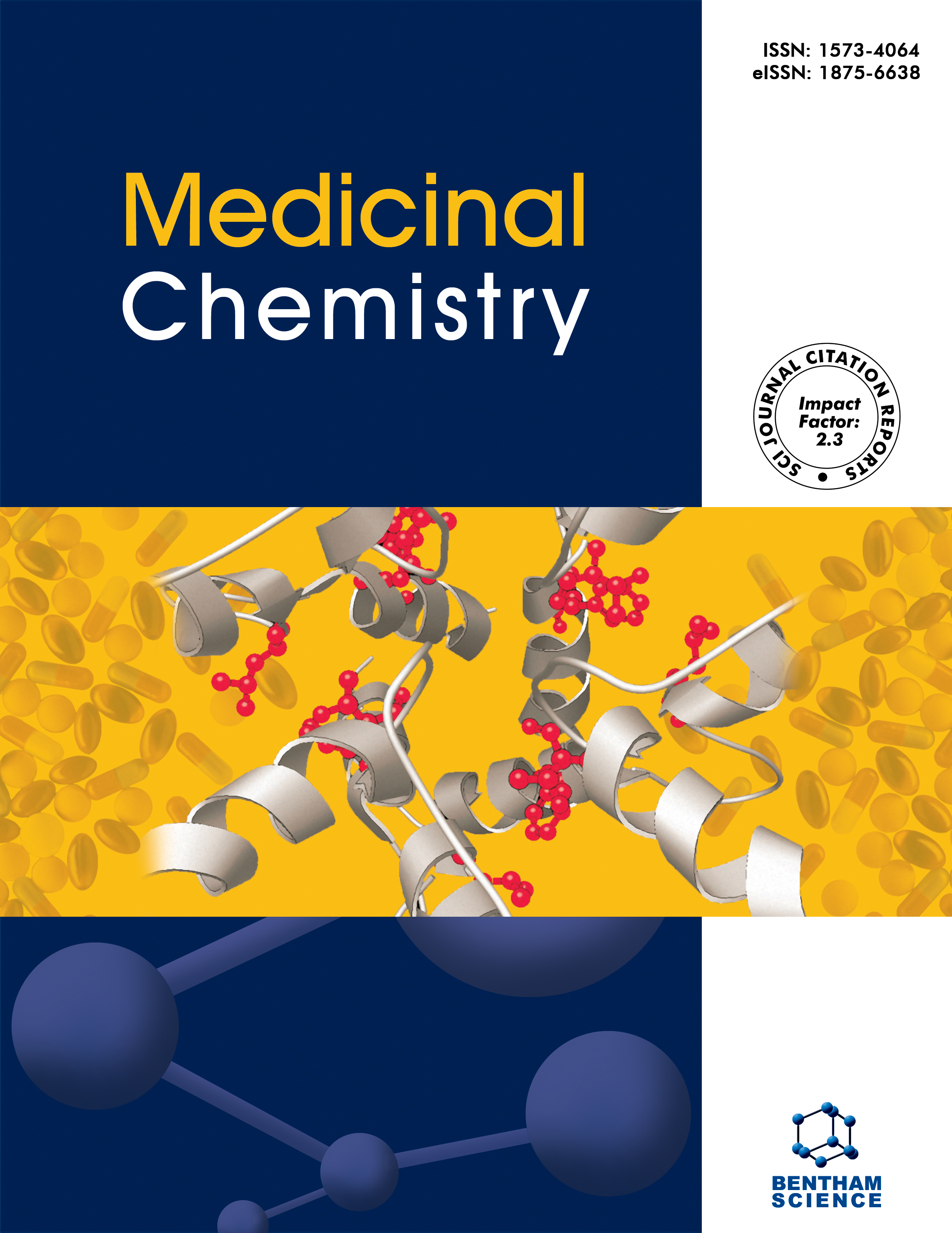-
oa Editorial [Hot topic: Contemporary Approaches in Cancer Therapy (Guest Editor: Riyaz Basha)]
- Source: Medicinal Chemistry, Volume 7, Issue 5, Sep 2011, p. 430 - 431
-
- 01 Sep 2011
Abstract
Cancer is a diverse disease with decisive pathobiology involving complex mechanisms. Recent advancements through research continue to focus on identifying vital targets and discovering multi-model therapies. It is essential to understand the disease processes and exploring the possible therapeutic strategies to save the lives of patients; however, the key factor remains the early diagnosis of the disease. In cancer therapy, it is very critical to identify ‘targets’ that will serve as limiting factors to regulate the disease by inhibiting tumor growth and metastasis. Emergence of drug resistance is one of the main reasons for the failure of drug therapy that leads to disease progression or recurrence, which may be lethal for patients. This hot topic issue on ‘Contemporary Approaches in Cancer Therapy’ primarily focuses on molecules/factors associated with cancer therapy and drug resistance, apart from a research report on developing non-invasive strategies for cancer diagnosis. This special issue contains ten original manuscripts including six research articles, one research report and three review articles. The research article by Achari et al. presents interesting data showing the application of multi-drug resistance (MDR)-1 modulating agent, chebulagic acid, for improving the efficacy of standard chemotherapeutic regimen in hepatocellular carcinoma. The intricacy of MDR in chemotherapy is a serious concern and this research article enlightens the importance of using MDR-1 modulating agents for addressing such an issue in cancer therapy. The research report written by Ozturk et al. provides interesting preliminary data on a non-invasive method for the diagnosis of breast cancer. Sialic acid is reported to be altered in both blood and saliva of various cancer patients. In this research report, authors elucidate an important study using patients' saliva to exploit a non-invasive predictive marker for breast cancer. Direct cell-cell communication is implicated in cellular differentiation and directs cellular function in mammary glands. Researchers are developing a novel strategy to exploit gap junction intracellular communication (GJIC) to enhance the efficacy of anti-cancer agents. The research article from Bernzweig et al. reveals the results of testing small molecules that modulate GJIC in combination with other known anti-cancer drugs to achieve higher response for the treatment of breast cancer. High expression of heat shock proteins (Hsp) such as hsp90 in tumor cells correlates with poor prognosis and aggressive disease. The research article by Chaturvedi et al. elucidates that targeting cyto-architecture and extracellular matrix of tumor cells through inhibiting hsp90 as a distinctive strategy in combating cancer. Designing potent and selective Src kinase inhibitors as anticancer agents is gaining significance since Src kinase mutations and/or overexpression have been implicated in the development of several malignancies including colon, breast, and lung cancers. Fallah-Tafti et al. reports for the first time that developing 4-aryl substituted derivatives of 2-amino-7-dimethylamino- 4H-chromene-3-carbonitrile may serve as potential Src kinase inhibitors with anti-cancer properties. Aberrant methylation of tumor suppressor genes (TSG) is an important epigenetic event in cancer, including multiple myeloma (MM). DNA methylation, the addition of a methyl group to the carbon-5 position of cytosine residues, is a key epigenetic modification controlling the expression of interleukin-6 (IL-6) which is associated with the pathogenesis of MM. Ingersoll et al. shows that IL-6-dependent pathway may regulate hypermethylation of TSG in MM. A number of studies on natural products reported that moderate consumption of tea may protect against several forms of cancer. It is evident that drug metabolizing enzymes such as cytochrome P450 (CYP) are involved in the bioactivation of precarcinogens and detoxification of ultimate carcinogens. Investigations by Maliakal et al. describes the effect of tea consumption on modulating CYP and phase II conjugating enzymes, and their association in the chemopreventive effect against esophageal tumorigenesis.....


